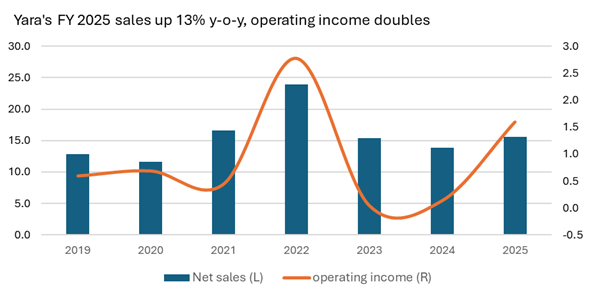Nitrogen+Syngas 395 May-Jun 2025

3 May 2025
Contract awarded for new nitric acid plant
thyssenkrupp Uhde has been awarded a contract by Gujarat Narmada Valley Fertilizers & Chemicals Ltd. (GNFC) for the construction of a weak nitric acid plant in Bharuch, Gujarat state. The scope of work includes license, basic engineering, detailed engineering, procurement, construction, commissioning, and start-up services. The plant will have a capacity of 600 t/d of weak nitric acid, and will use Uhde’s proven EnviNOx® technology to reduce greenhouse gas emissions by eliminating nitrogen oxides from nitric acid production. This will be the third weak nitric acid plant licensed by Uhde to GNFC’s Bharuch site, in a partnership going back more than three decades.
Dr. T. Natarajan, managing director of GNFC said: “We are delighted to further strengthen our market presence for Weak Nitric Acid in India by installation of new plant based on thyssenkrupp Uhde technology. At present, we are operating two nitric acid plants licensed by thyssenkrupp Uhde. The third plant will enhance the capacity and fulfil the [Indian government’s] ‘Make in India Campaign’ with a commitment to environment conservation.”
The project will be carried out by thyssenkrupp Uhde’s local subsidiary in India, a leading EPC and engineering consultancy offering solutions across different sectors such as petrochemicals and refining, fertilizers, cryogenic storage and more, which has executed more than 850 projects in the past four decades.






